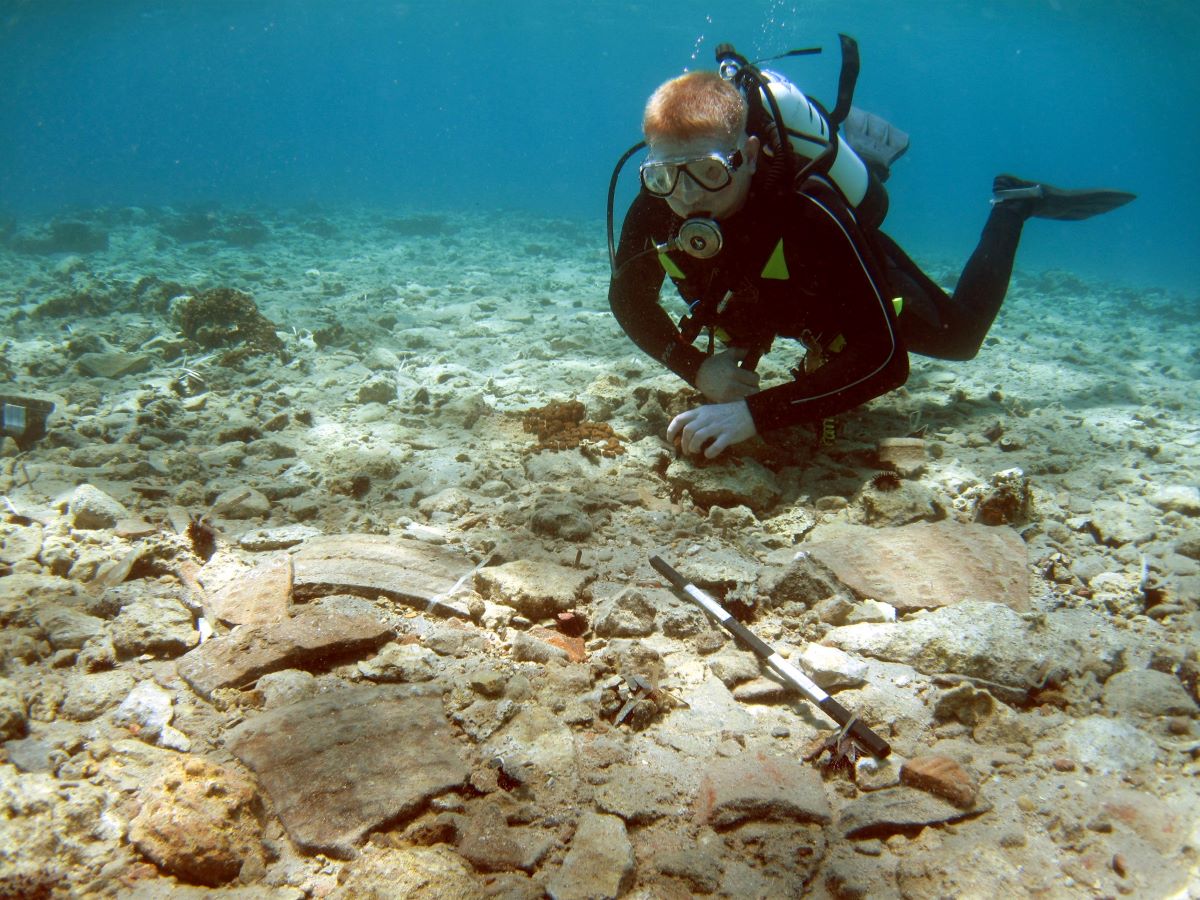15 years of collaborative work between a University of Nottingham archaeologist and a local community in Greece, has resulted in policy reform in the European country, by recognising the Malea Peninsula as a place of outstanding natural and cultural value.
The Greek state has officially announced that the peninsula with its historical cape – in the southeast of the Peloponnese – has been designated a Landscape of International Significance.
Dr Chrysanthi Gallou, Associate Professor of Archaeology and Director of the Centre for Spartan and Peloponnesian Studies (CSPS) at the University of Nottingham, has been leading on work undertaken at CSPS to promote research and outreach projects, combining scholarly expertise with local public engagement and developing tourism viability.
The research highlights the global cultural, historical, and natural significance of the peninsula and its cape – considered to be the oldest known cape by name in the world, which transcends time with references to it from as early as the 8th century BC in the Homeric epic Odyssey – and allows for opportunities to blend cultural memory with action, and ancient heritage with a forward-looking vision.

This formal designation echoes the voice of the local community who have been fighting for years to ensure a sustainable future for themselves and the future generations. It also testifies to the long-term impact of collaboration between local communities and academics and the potential of joint efforts to drive national policy."
The announcement follows tension between the drive for green energy and the installation of windfarms, versus concerns for the protection of the area's cultural and environmental heritage. The objective of the designation was not to suppress green energy, but historical sites are economic and cultural resources, and the responsible reconciliation of the two priorities requires consideration and examination.

The Landscape of International Significance recognition requires that any possible future development, infrastructure or planning in the area must respect the protected heritage status. The Malea peninsula is now included as part of Greece's sequence of internationally significant cultural and natural sites.
The Nottingham research in support of the region's historical and cultural importance began back in 2009 with the underwater archaeology project at the prehistoric town at Pavlopetri – now submerged off the coast of southern Laconia in the Peloponnese – followed by a series of articles and two in preparation co-authored monographs, and most importantly a common Agreement first articulated in 2011 during the International Symposium Cape Malea: From the Homeric to the Modern Landscape.
The symposium – which was co-organised by Dr Gallou, the Velanidia Association 'I Myrtidiotissa' and the Municipality of Monemvasia (with the support of the Aikaterini Laskaridis Foundation and the Mediterranean Institute for Nature and Anthropos (MedINA), under the auspices of the Region of Peloponnese) – became the beginning of a cultural movement, from which followed site visits, ecological walks, bird releases, and the symbolic opening of the Cape Malea Lighthouse.
All the projects have provided a framework for protecting and managing the region, supporting research, and promoting sustainable tourism, while protecting its unique natural and cultural values.
Panagiotis Tripontikas, f. President of the Velanidia Association 'I Myrtidiotissa' and M.A. Captain in the Hellenic Navy & MARCOM–NATO, who has worked collaboratively with Dr Gallou, said:
"The formal designation of the peninsula as a Landscape of International Significance by the Greek state is not an end, but a beginning of this endeavour. It requires re-dedication to education, ecotourism, international research, and wise stewardship of one of Greece's most historic landscapes."






